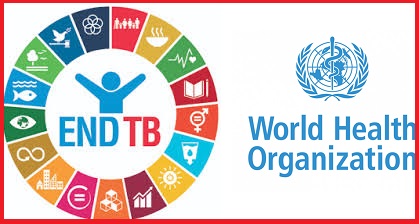On World Tuberculosis (TB) Day, the World Health Organization (WHO) has issued a dire warning, emphasizing the urgent need for increased investment in TB care. The organization lamented that severe and abrupt reductions in global health funding could reverse decades of progress in combating the world’s deadliest infectious disease.
According to WHO, TB remains a leading cause of mortality, claiming over a million lives annually and imposing severe socio-economic burdens on affected families and communities. The agency highlighted that global efforts have saved approximately 79 million lives since 2000, but these gains are now at serious risk due to funding constraints.
“The drastic and abrupt cuts in global health funding happening now threaten to reverse these gains,” WHO stated. “Rising drug resistance, particularly in Europe, along with ongoing conflicts across the Middle East, Africa, and Eastern Europe, are worsening conditions for the most vulnerable.”
The 2024 World TB Day campaign, themed “Yes! We Can End TB: Commit, Invest, Deliver,” serves as a call to action for urgent financial commitments, accountability, and intensified efforts.
Funding Cuts Endanger TB Services
WHO Director-General, Dr. Tedros Adhanom Ghebreyesus, emphasized that the progress achieved in the last two decades is now under threat as funding cuts disrupt essential TB services, including prevention, screening, and treatment.
“We cannot abandon the commitments made at the UN General Assembly 18 months ago to accelerate efforts to end TB,” Ghebreyesus said. “WHO remains committed to working with all stakeholders—governments, donors, and partners—to mitigate the impact of funding shortages and identify innovative solutions.”
Early reports indicate that some of the highest TB-burdened countries are already facing severe disruptions in their TB response efforts. WHO identified the African region as experiencing the most significant setbacks, followed by Southeast Asia and the Western Pacific.
The financial shortfalls are leading to devastating consequences, including:
- Shortages of healthcare personnel, affecting service delivery.
- Disruptions in diagnostic services, delaying TB detection and treatment.
- Collapse of surveillance and data systems, hampering disease monitoring and control.
- Deterioration of community engagement efforts, reducing case detection and increasing transmission risks.
- Breakdowns in drug procurement and supply chains, jeopardizing patient treatment.
Global Underfunding Worsens Crisis
WHO warned that the funding cuts in 2025 will only intensify an already dire financial gap. In 2023, only 26% of the $22 billion required annually for TB prevention and care was available, leaving a substantial shortfall. Similarly, TB research remains critically underfunded, with just one-fifth of the $5 billion needed in 2022 secured—hindering advancements in diagnostics, treatment, and vaccine development.
WHO is spearheading initiatives such as the TB Vaccine Accelerator Council to fast-track the development of a TB vaccine. However, these efforts remain in jeopardy without sustained financial commitments from the global community.
WHO Calls for Urgent Action
In response to the escalating crisis, WHO, along with the Civil Society Task Force on Tuberculosis, has issued a strong joint statement urging global action. The statement outlines five key priorities:
- Urgently addressing disruptions in TB services to prevent a resurgence.
- Ensuring sustainable domestic funding to maintain uninterrupted access to care.
- Protecting access to critical TB services, including medications, diagnostics, and social protections.
- Fostering national and global partnerships to strengthen TB response efforts.
- Enhancing monitoring systems to detect and address disruptions early.
Dr. Tereza Kasaeva, Director of WHO’s Global Programme on TB and Lung Health, stressed the need for immediate action, stating:
“This urgent call highlights the necessity of swift and decisive measures to sustain global TB progress. Investing in TB elimination is not just a moral obligation but also an economic necessity—every dollar invested in TB prevention and treatment yields a return of approximately $43 in economic benefits.”
A Sustainable Approach to TB Control
As a response to funding challenges, WHO is advocating for the integration of TB and lung health services within primary healthcare systems as a sustainable solution. The agency has released new technical guidance focusing on:
- Prevention and early detection of TB and related conditions.
- Optimized management at first patient contact to improve treatment outcomes.
- Stronger follow-up systems to enhance patient care.
- Addressing shared risk factors, such as overcrowding, malnutrition, tobacco use, and pollution.
By tackling TB alongside other communicable and non-communicable diseases, WHO aims to create a more resilient and sustainable health system.
WHO is calling on all stakeholders—including individuals, communities, donors, and governments—to take decisive action in the fight against TB. Without urgent interventions, decades of progress will be reversed, placing millions of lives at risk and threatening global health security.




